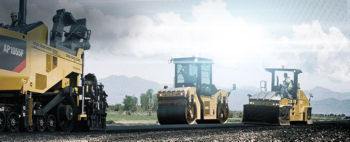Description project
 Our society has an increasing need for vocationally trained engineers who not only possess traditional domain knowledge and skills, but are also able to deal with variation, uncertainty and risks in their daily jobs. This requires them to be able to assess and understand job situations, and to anticipate how they might develop. Such knowledge, also called situational awareness (SA), that informs decision-making and actions to keep situations under control, is assumed to develop after years of experience on the job. It is also assumed that such knowledge cannot be trained in schools. The current project aims to bridge this gap between the formal learning at school and the experiential, on-the-job learning. It does so by using Virtual Reality (VR) technology to bring realistic working situations to the classroom, in which student can experience the full complexity of work situations and train their SA. The project has three key goals. The first goal is to develop a VR training aiming at SA, and to assess the learning effects. The second goal is to develop debriefing strategies that teachers can use to optimize the VR training effectiveness. The third goals is to develop dedicated instruments that help students and teachers to assess and monitor the results of the VR training. The training and assessment instruments will be co-designed with teachers and scientists. The effectiveness of the training and debriefing strategies will be assessed in experimental studies.
Our society has an increasing need for vocationally trained engineers who not only possess traditional domain knowledge and skills, but are also able to deal with variation, uncertainty and risks in their daily jobs. This requires them to be able to assess and understand job situations, and to anticipate how they might develop. Such knowledge, also called situational awareness (SA), that informs decision-making and actions to keep situations under control, is assumed to develop after years of experience on the job. It is also assumed that such knowledge cannot be trained in schools. The current project aims to bridge this gap between the formal learning at school and the experiential, on-the-job learning. It does so by using Virtual Reality (VR) technology to bring realistic working situations to the classroom, in which student can experience the full complexity of work situations and train their SA. The project has three key goals. The first goal is to develop a VR training aiming at SA, and to assess the learning effects. The second goal is to develop debriefing strategies that teachers can use to optimize the VR training effectiveness. The third goals is to develop dedicated instruments that help students and teachers to assess and monitor the results of the VR training. The training and assessment instruments will be co-designed with teachers and scientists. The effectiveness of the training and debriefing strategies will be assessed in experimental studies.
Expected outcomes
The SA training will be co-developed with subject-matter experts, and the validity and accuracy of the VR training, the scenarios, and the assessments, in the eyes of subject-matter experts, regarding representation of the job-related issues, situations, and procedures will be investigated. We aim and expect to develop both valid and accurate representations of these aspects. Second, we will investigate the VR training gains with regard to SA for different groups (novice and advanced students, professionals). We expect to find a benefit of the training for SA, and that the training gains will vary between individuals and between groups. Finally, we will investigate the effects of debriefing on the VR training of SA, and the effects of video playback in the debriefing. We expect higher gains for training groups exposed to debriefing after training sessions, and an added benefit of video playback during debriefing.
involved researchers
Dr. Ilona Friso-van den Bos - contact person
Dr. Bas Kollöffel - project leader
Sajad Mowlaei - PD Eng candidate
Dr. Ir. Farid Vahdatikhaki
Prof. dr. Bernard Veldkamp - OMD department
Duration of the project
December 2018 - November 2021
Funding and partners
The project is funded by the Netherlands Initiative for Education Research (NRO) under project number 40.5.18540.210.
Partners in this project are researchers from Educational Science and Technology collaborate with researchers from Construction Management and Engineering, teachers from two Dutch vocational engineering schools (ROC van Twente; SOMA college), BAM, Bouwend Nederland (organization representing about 4300 affiliated construction and infrastructure companies), and the ASPARi (Asphalt Paving Research and innovation) network, which is a network of organizations involved in asphalt construction, including leading companies such as Boskalis, Ballast Nedam, BAM, Dura Vermeer, Heijmans, KWS, Strukton, and authorities such as Rijkswaterstaat (Department of Waterways and Public Works) and the Province of Overijssel..
project website
Not applicable
Publications related to this project
- Friso-van den Bos, I., & Kollöffel, B. (March, 2019). Connecting the dots. Taakgerichte Virtual Reality voor het trainen van situational awareness in MBO Techniekonderwijs. Poster presented at the NRO Inspiratiebijeenkomst, Utrecht.
